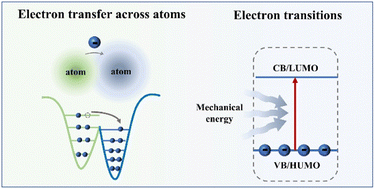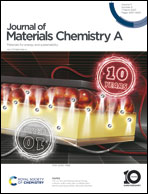Tribocatalysis mechanisms: electron transfer and transition
Abstract
Tribocatalysis is an emerging technology that can convert mechanical energy into chemical energy to degrade organic pollutants. The two widely used tribocatalysis mechanisms are the electron transfer and transition mechanisms. Currently, there is no definitive criterion to determine which mechanism is best employed for proper implementation in a tribocatalysis reaction. In this review, research that compares the two mechanisms through their electronic structures as criteria for selection is discussed. The factors influencing the tribocatalysis performance as well as criteria for tribocatalysis mechanism selection are the surface state, energy band structure, and force. Finally, the proposed standard method to analyze the electronic state, relation between the catalyst and H2O (O2), energy band bending theory, and charge preservation for tribocatalysis must be explored for tribocatalysis mechanism development. This review seeks to elicit meaningful discussion for distinguishing the unique characteristics of the two existing mechanisms and understanding the details of tribocatalysis mechanisms.

- This article is part of the themed collection: Journal of Materials Chemistry A Recent Review Articles


 Please wait while we load your content...
Please wait while we load your content...